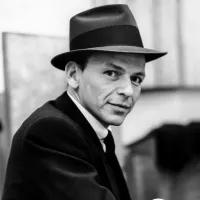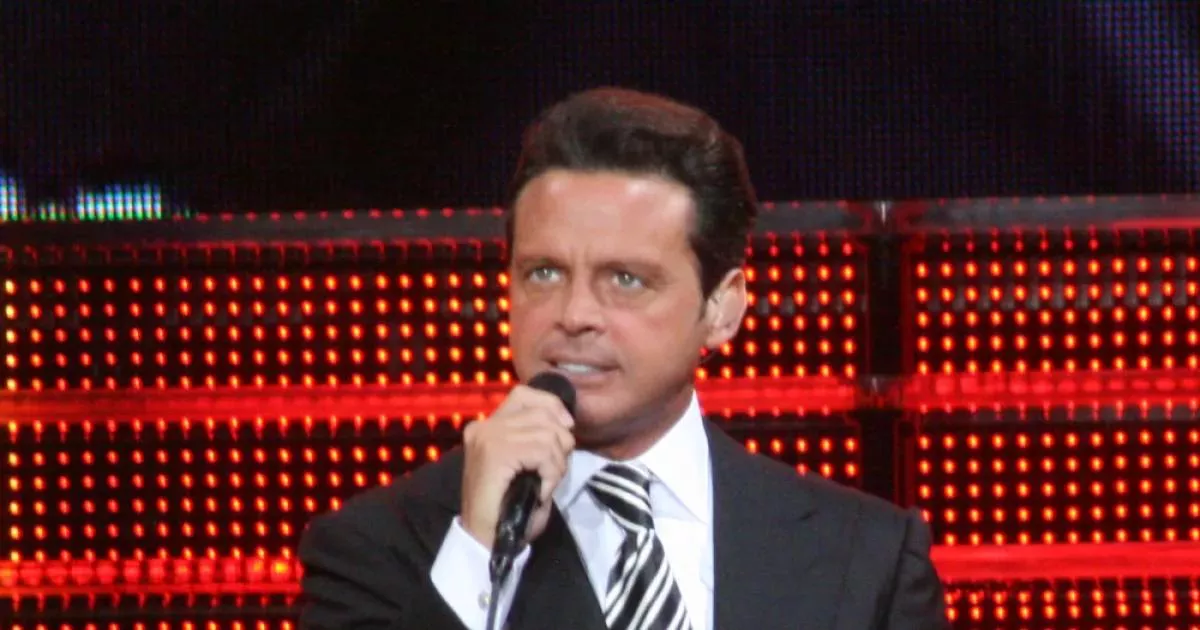Luis Miguel, a Mexican singer and record producer born in Puerto Rico, is widely known as "El Sol de México." He gained prominence singing in diverse genres like pop, ballads, boleros, and mariachi. Notably, he remained a prominent Latin singer without crossing over to the Anglo market during the 1990s Latin music boom. He is the only Latin singer of his generation who did not cross over to the Anglo market during the “Latin Explosion” in the 1990s.
April 1970: Luis Miguel's Birth
In April 1970, Luis Miguel Gallego Basteri was born in Puerto Rico to an Italian mother and a Spanish father. He would later become known as El Sol de México.
1981: Career Start in Mexico
In 1981, Luis Miguel started his career in Mexico. His Latin pop music and stage presence contributed to his early popularity.
1982: Release of First Album
In 1982, Luis Miguel released his first album, Un Sol, with EMI Records, earning his first gold disc at age 11.
1983: Film Debut
In 1983, Luis Miguel co-starred in the film Ya Nunca Más, which was released in 1984.
1984: International Release of Palabra de Honor and Acting Debut
In 1984, Luis Miguel internationally released his fourth studio album Palabra de Honor and also co-starred in the film Ya Nunca Más, which was released the same year.
1985: Sanremo Music Festival and Viña del Mar Music Festival
In 1985, at age 15, Luis Miguel participated in the Sanremo Music Festival, winning second place with "Noi Ragazzi Di Oggi". He also received the "Antorcha de Plata" Award at the Viña del Mar Music Festival for his duet with Sheena Easton, "Me Gustas Tal Como Eres". Furthermore, in 1985, he appeared in the movie Fiebre de amor.
1986: Hiatus Due to Father's Mismanagement
In 1986, Luis Miguel took a brief hiatus due to alleged mismanagement and poor financial decisions by his father.
1986: Disappearance of Luis Miguel's mother
In 1986, Luis Miguel's mother disappeared mysteriously, and her whereabouts remain unknown.
May 1987: Release of Soy Como Quiero Ser
In May 1987, Luis Miguel's album Soy Como Quiero Ser was released, selling over 2.5 million records. The album featured Spanish-language adaptations of popular English-language songs.
November 1988: Release of Busca una Mujer Album
In November 1988, Luis Miguel's album Busca una Mujer was released.
June 1989: Birth of Luis Miguel's first child
In June 1989, Luis Miguel had his first child with Stephanie Salas.
1989: Success of "La Incondicional"
In 1989, "La Incondicional" became a top-ten hit throughout Latin America, spending over seven months on the top ten of many Latin American charts. Also by the end of 1989, the single "Fría Como el Viento" reached No. 1 on the Hot Latin Tracks.
1990: Transition to Adult Showman and Release of 20 Años
In 1990, Luis Miguel transitioned from a child singer to an adult showman with the album 20 Años, which sold 600,000 copies in its first week and led to sold-out shows. The singles "Tengo Todo Excepto A Ti" and "Entrégate" reached number 1 on Billboard's Hot Latin Tracks.
1990: Top Ten Hit with Separados
In early 1990, Luis Miguel had a top-ten single with "Separados", peaking at No. 8 on the charts.
1990: Boxscore Tracking Start
Since Boxscore began tracking touring data in 1990, Luis Miguel is the highest-grossing Latino touring artist, with a total of $633.1 million and 6.3 million spectators.
1991: Release of Romance Album
In 1991, Luis Miguel's career reached new heights with the release of Romance, an album of romantic boleros, which sold 7 million units worldwide and reinvented the bolero for modern audiences.
1991: RIAA recognition for high album sales
In 1991, the RIAA gave Luis Miguel a recognition for the high sales of the albums Romance and Segundo Romance.
1991: RIAA Recognition of Romance Album
In 1991, the RIAA recognized the success of Luis Miguel's Romance album as one of the best-selling Latin albums of all time. He also earned two platinum certifications for Spanish-language albums in the United States for Romance and Segundo Romance
1993: Grammy Award for Aries and Collaboration with Frank Sinatra
In 1993, Luis Miguel released his fifth studio album, Aries, which won the Grammy Award for Best Latin Pop Album. Also in 1993, he was invited by Frank Sinatra to collaborate on his Duets II album and to perform live in a televised special honoring Sinatra's 80th birthday.
1994: Release of Segundo Romance
In 1994, Luis Miguel released Segundo Romance, a sequel to Romance, and earned another Grammy Award and platinum status in the United States.
1996: Hollywood Walk of Fame Star and Release of Nada Es Igual
In 1996, Luis Miguel received a star on the Hollywood Walk of Fame. Soon after, he released the pop album Nada Es Igual, featuring "Sueña" for Disney's The Hunchback of Notre Dame.
1997: Release of Romances Album
In 1997, Luis Miguel released Romances, his third album of the bolero series, which sold over 5 million copies. "Por Debajo de la Mesa" reached number one on the Billboard Hot Latin Songs chart and remained there for twenty-six weeks.
1997: Success of the album Romances
In 1997, Luis Miguel's album Romances became the first Spanish-language album ever debuting at No. 14 on the Billboard Top 200.
1998: Grammy and Billboard Latin Music Award
In 1998, Luis Miguel won the Grammy Award for Best Latin Pop Performance and received the Billboard Latin Music Award for Male Pop Album of the Year for the album Romances. He also received the World Music Award for Best Selling Latin Artist.
1999: Release of Amarte Es un Placer Album
In 1999, Luis Miguel released his ninth studio album Amarte Es un Placer.
2000: Latin Grammy Awards for Amarte Es un Placer
In 2000, Luis Miguel's Amarte Es un Placer earned him two Latin Grammys for Best Album of the Year and Best Pop Album of the Year.
2001: Release of Mis Romances and Tour
In 2001, Luis Miguel released Mis Romances, his fourth album in the bolero series, which sold over two million copies worldwide. This was followed by the Mis Romances Tour in the U.S., Europe, and Latin America.
2003: Release of 33 Album and Tour
In 2003, Luis Miguel released his first pop album in over four years, entitled 33, which climbed to number 1 on Billboard's Latin Charts and earned him two Billboard Awards, as well as Grammy and Latin Grammy award nominations. He also launched the 33 Tour which filled the largest halls in the U.S., Latin America, and Europe. Warner Chile recognized Luis Miguel as the artist with the most sold records sold in the history of Chile.
2003: Awards and Recognition in Spain and Lo Nuestro Award
In 2003, Prince Felipe of Spain presented Luis Miguel with a special award for being the best-selling foreign artist in the country's history and hosted a special party in his honor in Madrid. He was also bestowed with the Premio Lo Nuestro a la Excelencia, a lifetime achievement award for his outstanding career.
2004: Release of Mexico En La Piel
In 2004, Luis Miguel released Mexico En La Piel, a collection of traditional Mexican mariachi songs, which sold five million copies worldwide.
September 2005: Start of Mexico En La Piel Tour
In September 2005, Luis Miguel launched his Mexico En La Piel Tour in Mexico.
2005: Release of Grandes Éxitos and Navidades Albums
In 2005, Luis Miguel released Grandes Éxitos, his first greatest hits album, along with a Christmas album called Navidades, which reached number one on Billboard's Top Latin Albums chart.
2006: Performances at the National Auditorium in Mexico City
In 2006, Luis Miguel performed thirty shows between 18 January and 27 February at the National Auditorium in Mexico City. The Mexico En La Piel Tour also won the Billboard "Tour of the Year".
2006: Award of the "Estela de Plata"
In 2006, during the Mexico En La Piel Tour, after giving 30 consecutive sold-out concerts at the Auditorio Nacional in Mexico, gathering over 260,000 spectators, Luis Miguel was awarded with the "Estela de Plata" at the last concert.
January 2007: Birth of Luis Miguel's second child
In January 2007, Luis Miguel had his second child with actress Aracely Arámbula.
2007: End of the Mexico En La Piel Tour
In 2007, Luis Miguel's Mexico En La Piel Tour concluded, having spanned two years with a total of 129 concerts attended by over 1.5 million spectators, grossing around $95 million.
April 2008: Release of "Si Tú Te Atreves" Single
On April 7, 2008, Luis Miguel released "Si Tú Te Atreves", the first single from the album Cómplices.
May 2008: Release of Cómplices Album
On May 6, 2008, Luis Miguel released Cómplices, produced by him and written by Manuel Alejandro, which sold almost 350,000 copies in the first 24 hours.
September 2008: Start of Complices Tour
In September 2008, Luis Miguel's Complices Tour began in Seattle, Washington.
December 2008: Birth of Luis Miguel's third child
In December 2008, Luis Miguel had his third child with actress Aracely Arámbula.
2008: Release of Cómplices Album
In 2008, Luis Miguel released his album Cómplices, which peaked at No. 10 on the Billboard 200 chart.
2008: Grammy nomination for Navidades
In 2008, Luis Miguel's album Navidades became the first Christmas album ever to be nominated for the Grammy in the category of Pop.
April 2010: Hospitalization at Cedars-Sinai Medical Center
In April 2010, Luis Miguel was briefly hospitalized at the Cedars-Sinai Medical Center in Los Angeles. The cause of the hospitalization was not disclosed.
September 2010: Release of Luis Miguel's self-titled studio album
On 14 September 2010, Luis Miguel released his self-titled studio album. The album's first single, "Labios de Miel", is a smooth Latin pop song.
2011: Ranking of the Luis Miguel Tour
In 2011, Luis Miguel Tour is ranked at number five of the highest-grossing tours of 2011 in North America.
February 2012: Performance at Viña del Mar International Song Festival
On 22 February 2012, Luis Miguel performed at the Viña del Mar International Song Festival for one million dollars, becoming the most expensive artist in the festival's history.
August 2013: Performance at Curaçao North Sea Jazz Festival
On 31 August 2013, Luis Miguel performed at the Curaçao North Sea Jazz Festival.
August 2014: Leak of the song "Déjà Vu"
In August 2014, the song "Déjà Vu" was leaked on the web.
July 2016: Order to pay William Brockhaus
In July 2016, Luis Miguel was ordered to pay his former manager William Brockhaus over one million dollars.
May 2017: Surrender to U.S. Marshals
On 2 May 2017, Luis Miguel surrendered himself to the U.S. Marshals following a case with his former manager William Brockhaus. He had been ordered to pay Brockhaus over one million dollars in July 2016, and was released shortly after signing a promissory note.
October 2017: Announcement of new single "La Fiesta del Mariachi"
On 27 October 2017, it was announced on Luis Miguel's official Facebook page that his new single "La Fiesta del Mariachi" was set to release.
2017: Release of ¡México Por Siempre! Album
In 2017, Luis Miguel released the album ¡México Por Siempre!, which earned him his second No. 1 on the Billboard Regional Mexican Albums chart and achieved double-platinum status.
February 2018: Start of tour for ¡México Por Siempre!
In February 2018, Luis Miguel began his tour for the album ¡México Por Siempre! at the National Auditorium of Mexico City.
April 2018: Premiere of Luis Miguel's self-titled series on Netflix and Telemundo
On 22 April 2018, Netflix and Telemundo began airing the self-titled series Luis Miguel. The series revealed both known and unknown aspects of the singer's life and included nostalgic references such as the mirroring of his Sabritas ad, called "Saboritas" in the series.
September 2019: End of the ¡México Por Siempre! tour
In September 2019, Luis Miguel ended the tour for his album ¡México Por Siempre! in Las Vegas.
October 2020: Billboard Ranking
As of October 2020, Luis Miguel was ranked number two on Billboard's Greatest of All-Time Latin Artists chart.
2020: Release of the second season of Luis Miguel's series
In 2020, the second season of the self-titled series Luis Miguel was released.
2021: Release of the third season of Luis Miguel's series
In 2021, the third season of the self-titled series Luis Miguel was released.
2023: Luis Miguel Tour 2023–24
In 2023, Luis Miguel started the Luis Miguel Tour 2023–24, where he visited 20 countries in North America, South America and Europe, performing 194 shows in a year and a half, which made it the highest-grossing tour ever made by a Latin artist.
Mentioned in this timeline
Facebook is a social media and networking service created in...

Frank Sinatra nicknamed Chairman of the Board and Ol' Blue...
Puerto Rico is a self-governing Caribbean archipelago and island that...
Venezuela officially the Bolivarian Republic of Venezuela is located on...

Christmas is an annual festival celebrated on December th commemorating...

Las Vegas Nevada's most populous city and the seat of...
Trending

11 minutes ago Priyanka Chopra stuns in Dior and Gaurav Gupta at 'The Bluff' premiere.
12 minutes ago Puerto Vallarta: Vehicle Fires and Roadblocks Disrupt Sunday Morning

12 minutes ago Sundar Pichai envisions AI's transformative potential, focusing on India and global connectivity.

12 minutes ago Rhys Hoskins Reportedly Set to Join Cleveland Guardians After Phillies Departure.

12 minutes ago Tate McRae stuns in Victoria's Secret dress, linked to Jack Hughes.

13 minutes ago Norah O'Donnell highlights unsung heroines in "We the Women" and celebrates Women's History.
Popular

Jesse Jackson is an American civil rights activist politician and...

Barack Obama the th U S President - was the...

Bernie Sanders is a prominent American politician currently serving as...

Ken Paxton is an American politician and lawyer serving as...

Michael Joseph Jackson the King of Pop was a highly...
WWE Raw a professional wrestling television program by WWE airs...
